Social Anxiety and BJJ (How To Overcome It!)
Has social anxiety stopped you from expressing yourself authentically and made it difficult for you to make friends at BJJ? Well, you aren't alone. According to Anxiety Canada, social anxiety disorder is a common occurrence, with 7% and 13% of the population being affected. With Brazilian jiu-jitsu being a social sport, how can we overcome this?
Here's the key takeaway: Confidence From The Mats Helps You Be Confident Off The Mats.
~ But how do we thrive under this pressure to start? How can we be confident off the mats if we are too socially terrified to be confident on the mats. This deep dive article will help to guide you..
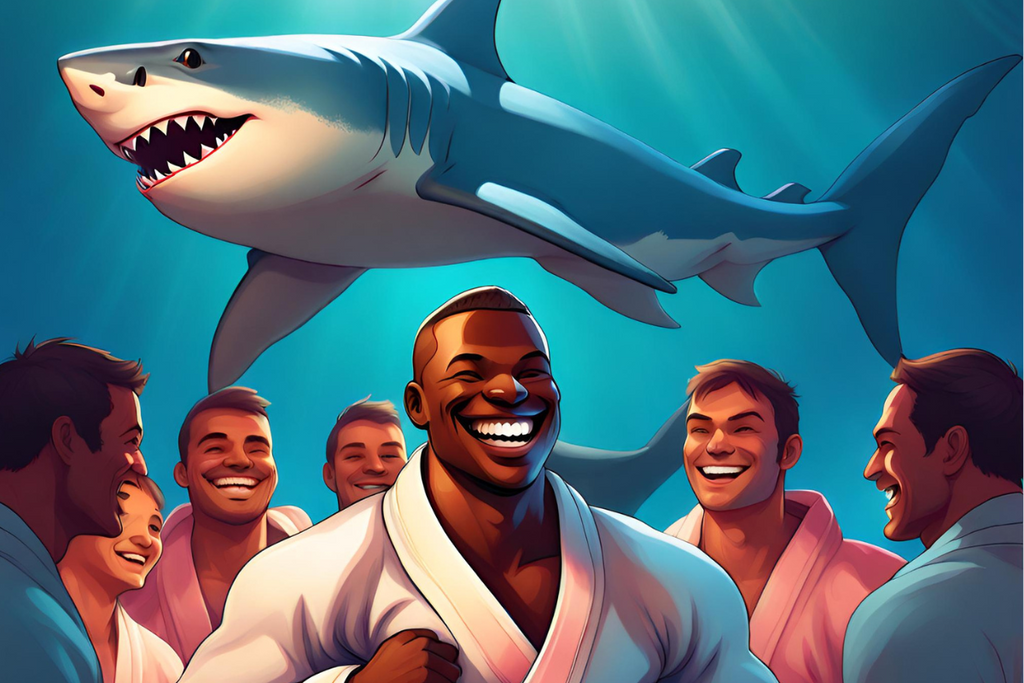
Now, how does the process of building social confidence typically work from a BJJ practitioner's perspective? It starts with showing up to class, feeling a little nervous about not knowing anyone or not being as skilled as the others. Then, gradually building connections and friendships through training together and pushing each other to improve. Let's explore this in more detail.
Starting With The Shrimps...
Do you remember your first BJJ class? Most jiu-jitsu classes start with basic movements like shrimping, bridging and rolling. As beginners, we all struggled to grasp these movements perfectly. It was frustrating when the person next to you seemed to get it effortlessly while you were struggling with even the most basic of techniques.
You'd wait for someone else to go first and if you were caught in the middle, you'd sweat as your slow movements begin to garner an audience. As you'd finally give that last ‘shrimp', you'd collapse out of breath, and pray for the next class not to be so hard. This awkwardness is not because you're unfit, it's because BJJ is unique and requires the brain to form new neural pathways, and our bodies to adapt accordingly. The social pressures can sometimes make it even harder.
If you are unable to learn on your own, don't be afraid to ask your instructor or more experienced training partners for help. They are there to guide and support you in your journey. If that doesn't work, remain calm and understand that others may be struggling as well. Hopefully, you'll feel a little more at ease knowing that everyone goes through this phase.
The Spotlight Effect In BJJ
In the scenario above, yes it might feel like everyone is watching and judging you as you struggle with the warm-up exercises. But, this phenomenon of feeling like we are being watched constantly is known as the 'spotlight effect'. It is a cognitive bias where we tend to overestimate how much attention others are paying to us.
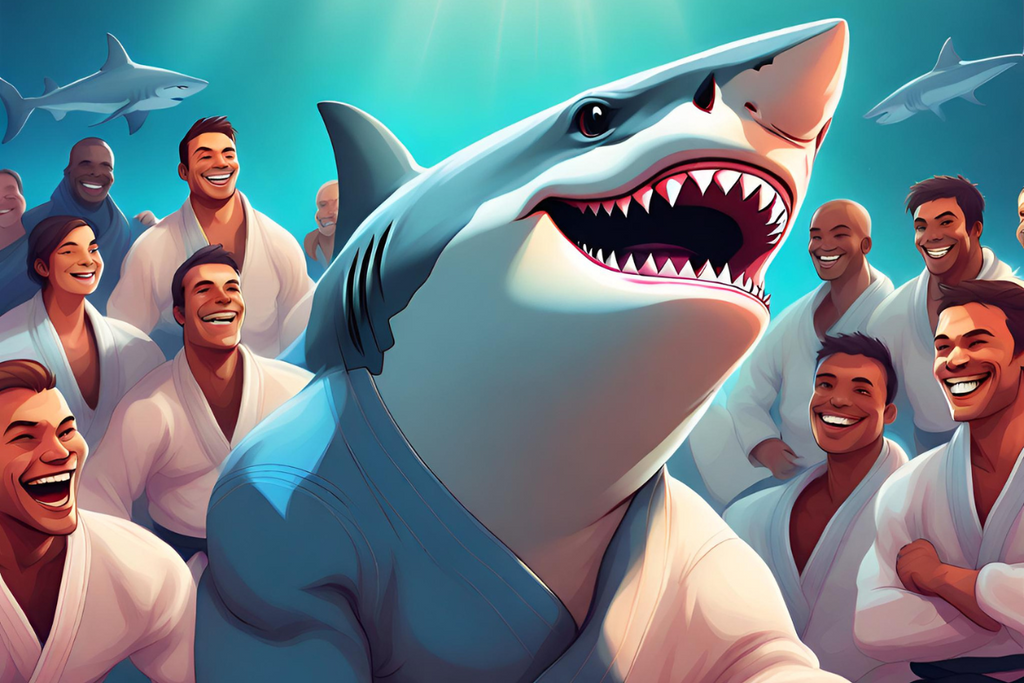
While it might feel like all eyes are on you during BJJ class, chances are your training partners are more focused on their own training and not as concerned about your progress. That's not to say that you don't matter to them, but rather that they understand the challenges of learning BJJ and are probably empathizing with your struggles.
So, next time you walk into your academy and you start to feel anxious socially, remember that the spotlight effect is at play and try to focus on your own training rather than how you are being perceived will not only help calm your nerves but also improve your learning experience. The Cabrini University wrote an excellent article about this 'Spotlight Effect' if you'd like to learn more.
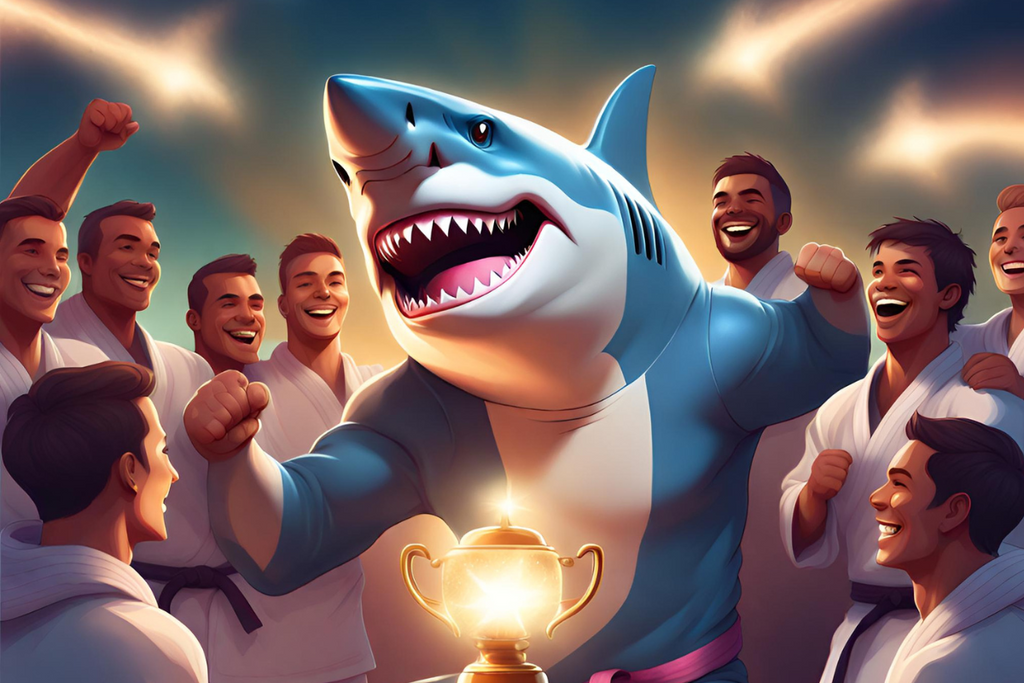
But... What if this doesn't work?
Well, then you'll just have to hone in on your skills and training to become a star in your academy. Embrace the spotlight and use it to your advantage 🤩🌠
Partnering Up (Who You Train With Matters)
After the warmups (or in the case of a day 1 white belt, the toughest part of the class), we all form a line and start pairing up. This is when status matters. As much as this is a martial art of leverage and technique, weight, height, strength and other physical attributes can make a big difference in training outcomes. The general rule is that you should try to pair up with someone who has roughly the same experience level as you. This will ensure that both of you can learn and improve from each other's techniques and movements.
But sometimes, things don't work out that smoothly. If you partner with another newly minted white belt, chances are that you'll be both looking at other groups for guidance. A lower belt may not have enough knowledge to help you out with a tricky technique leading to frustration from both partners.
Some academies may intentionally pair up blue belts with white belts, which can make the newer students feel welcomed and mentored. But it can also lead to the blue belts not getting as much of a challenge in their training. This is a delicate balance that instructors must maintain to provide the best learning environment for all students.
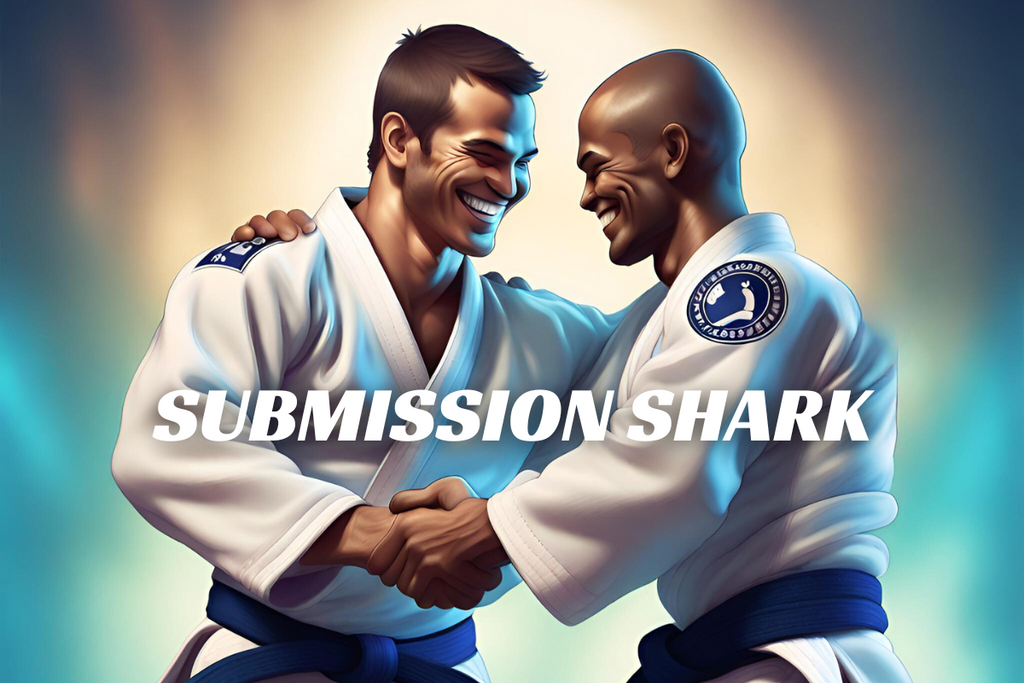
As a blue belt, it felt amazing to be able to help out a white belt with their technique or answer any questions they had. It also reminded me of how far I've come and how much more I still have to learn. Similarly, when I partnered with a higher belt, it was an opportunity for me to challenge myself and push my limits. Higher belts and other blue belts are excellent and finding the right amount of resistance helps you improve without overwhelming you.
So, don't fear training with someone who may be at a different level than you. Embrace the challenge and use it as an opportunity to grow and improve. Remember, status may matter when finding training partners, but ultimately it's the effort, dedication and attitude that truly determine your progress in BJJ. White belts can be phenomenal training partners and higher belts can provide valuable guidance, but in the end, it's up to you to make the most out of every training session.
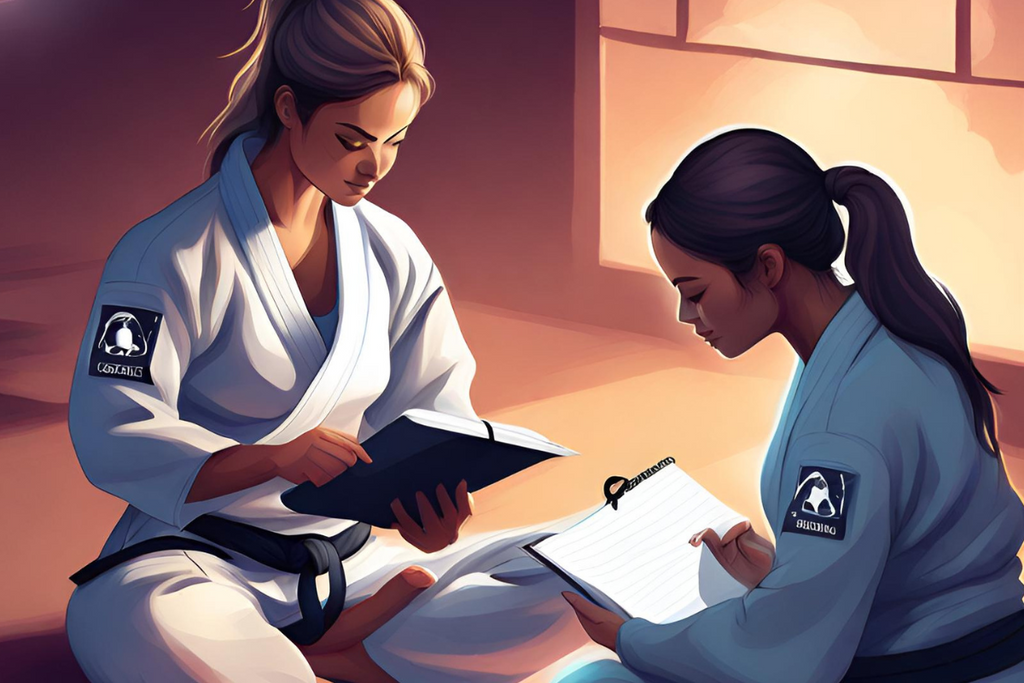
Keep an open mind and always be willing to learn from anyone, regardless of their rank or status on the mats. A white belt in BJJ may be a champion wrestler or a judo black belt, bringing a whole new set of skills to the table. And a higher belt may be going through their own struggles and challenges in BJJ, making them more relatable than you may think.
In the end, it's not about who is better or higher ranked. It's about growth, improvement, and camaraderie within the BJJ community.
Helping Others With Social Anxiety Through BJJ
As someone who used to be shy growing up, the moment an instructor called upon us to form groups for drilling or sparring, I always felt a nervous pang in my stomach. Being left out as you turn your head to see everyone else has found a partner, your mind starts racing, and wondering who to ask can be daunting.
I didn't want to disturb the higher belts as they were usually busy helping out the less experienced students, and I didn't want to bother my regular training partners who may have already planned to work with someone else.
But one day (When I was still a white belt), it all changed when a blue belt came up to me and asked if I wanted to work together for the class. It may not seem like a big deal, but for me, it was a huge confidence boost and made me feel welcomed and included in the BJJ community.
From then on, I made an effort to reach out to other students, regardless of their rank or status, and form new training partnerships.
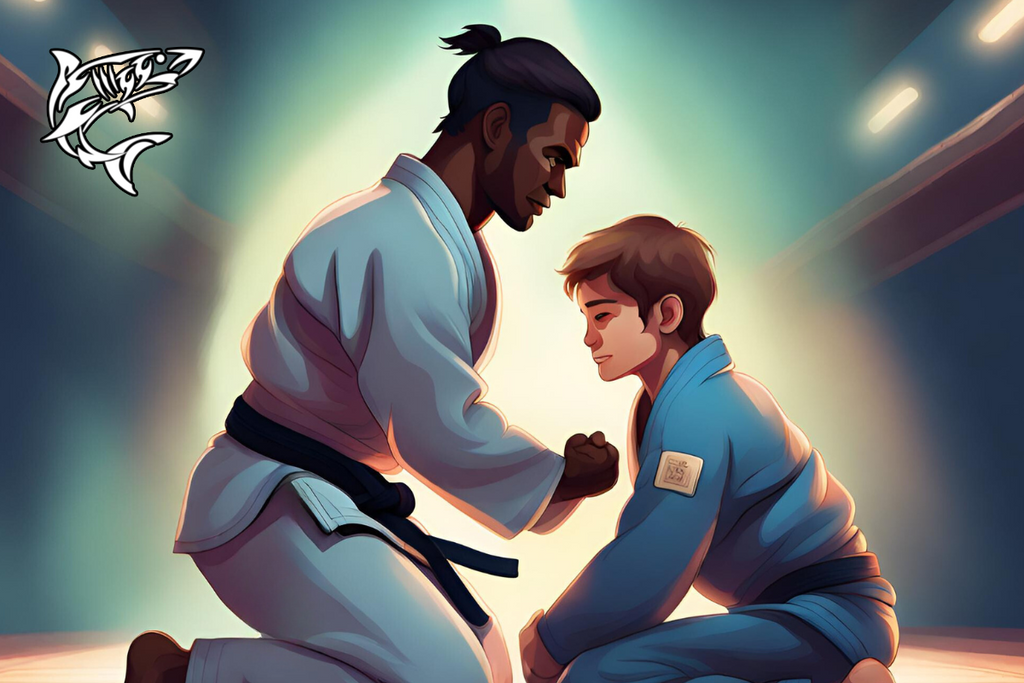
Yes, we all want to get better. And empowering newer students is something we should all strive for as experienced practitioners. As the saying goes, "Iron sharpens iron."
By welcoming and training with lower belts, we not only help them improve their skills (Which ultimately serves as an investment for better training partners in the future) but also create a positive and inclusive environment for everyone on the mats.
A member of my team (who is naturally outgoing) would always make an effort to introduce himself to new students, no matter their rank. His energy and willingness to work with anyone inspired me to do the same. If you are feeling shy, understand that maybe you have a gift to make someone else feel welcomed and appreciated.
How To Anchor Your Social Anxiety At The Door
Just like how we say, "Leave your ego at the door" when stepping onto the mats, it's also essential to leave any social anxiety or status concerns behind. Everyone is there for the same reason - to learn and improve their BJJ skills. So don't let your fears of asking someone with a higher rank to train with you hold you back from taking advantage of every opportunity to learn and grow.
Here are some things to keep in mind if you are feeling socially anxious at BJJ:
- Everyone was once a beginner.
- Every experienced practitioner you see on the mats today has been through the same learning process and has also been in your shoes.
- It's okay to ask for help or clarification.
- You never know who you might meet or connect with by reaching out and training with someone new.
- Everyone there has a shared interest in BJJ. (Ask questions and talk about that!)
- You are a valued member of the BJJ community, regardless of your experience level or belt rank.
Finding The Source of Your Social Anxiety
It's essential to recognize the root of your social anxiety and status concerns. Is it because you feel intimidated by someone with a higher rank? Are you worried about making mistakes or not being good enough? Once you identify the source, you can work on addressing it and find ways to overcome it.
Sometimes it is simply a lack of social skills that makes us feel anxious. If that's the case, try pushing yourself out of your comfort zone and practice talking to different people at the gym. You'll be surprised at how welcoming and friendly most BJJ practitioners are. BJJ naturally helps build friendships and comradery, so don't be afraid to strike up a conversation with someone you don't know.
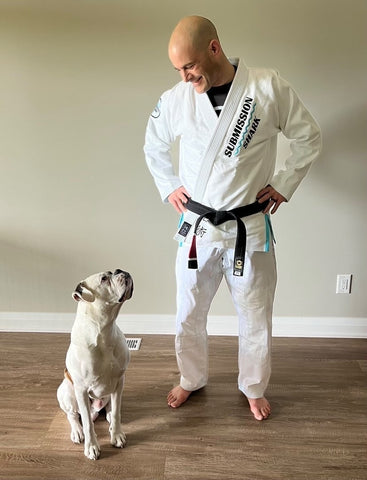
(The Ice Breaker BJJ Gi) ~ Join The Submission Shark Community
Remember, talk about BJJ if you don't know what else to say. This shared interest can help break the ice and make it easier to connect with others.
The Power of Mentoring
Rank shouldn't dictate who we can or cannot train with, but it does play a role in shaping our mentorship opportunities. As an experienced practitioner, I have been fortunate enough to have several lower belts approach me for advice. And, I still seek advice from lower belts who may have insights or techniques that I haven't yet mastered.
Mentorship is a two-way street in BJJ. When we mentor others, we also learn and grow ourselves. The guidance and support from higher ranks can be invaluable for newer students, but the fresh perspective and enthusiasm of lower ranks can also benefit more experienced practitioners. Maybe a lower-ranked individual paid closer attention to the technique being taught in class and could provide a different insight on how to execute it.
Or maybe their agility or flexibility allows them to pull off a move that we struggle with due to our size or body type and they can teach us some off-the-mats tricks. Regardless of rank, everyone has something to offer and gain from mentorship in BJJ.
Shy blue belts can often come out of their shells as they see others struggling with the same issues they did at white belt, and can help them overcome those hurdles. It's easier to talk if you know how to help. This of course requires consistency in training so that you are confident enough to give good advice on the technique you were just taught. Training is the way.
Status On The Mats
As a beginner in BJJ, I was often at the bottom of this belt hierarchy. White belt spazzy movements and lack of technique often deterred higher belts from training with me, leaving me frustrated and feeling inadequate. However, as I progressed through the ranks and gained more experience (poise, calm and control), I noticed a shift in how I was perceived as a training partner.
Once I reached the rank of blue belt, I began to receive more invitations to train with higher belts. I was no longer seen as a liability, but rather as someone who could provide a challenge and help them improve their own skills.
This is not to say that when I was a white belt I couldn't find training partners at all. There were always other white belts, or blue belts who were willing to help me learn and improve. As mentioned in the intro, status is something that is often fringe to talk about but there is no denying that it exists in the BJJ community.
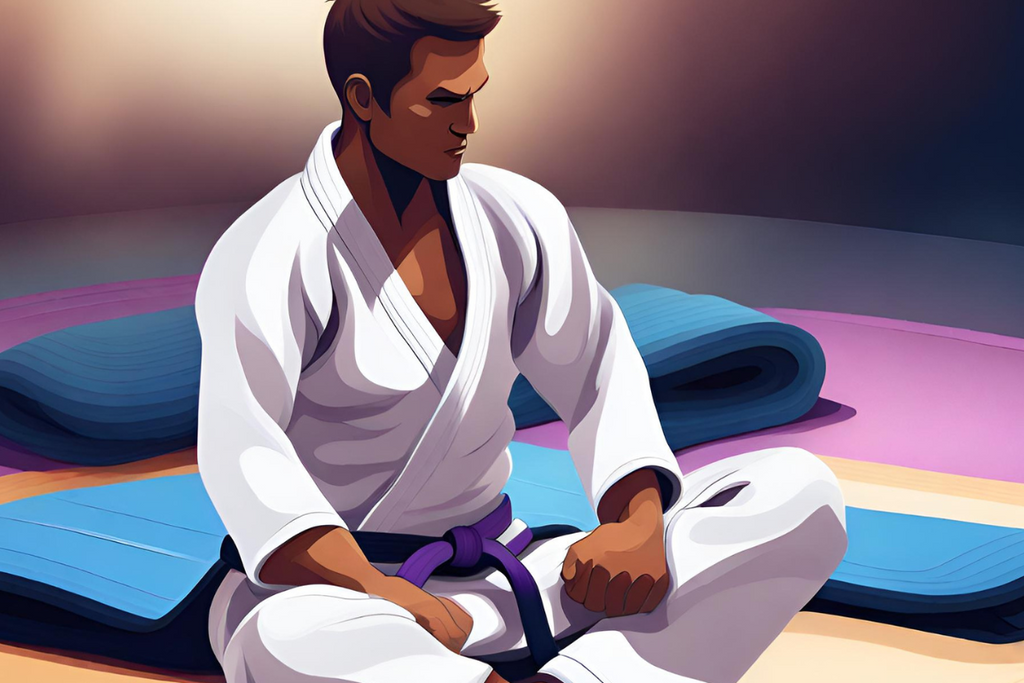
It plays a crucial role in mentoring but also in the culture of respect and hierarchy in BJJ. As we progress through the ranks, our status within the community changes. We become more respected, and sought after for advice, and can even develop a reputation as a tough training partner. Just don't let that power trip go to your head!
But the flip side of this is that we must also remain humble and open to learning from those who may have a lower rank than us but possess valuable knowledge and experience.
Status should not be used to intimidate or belittle others, but rather as a means of fostering growth and camaraderie within the BJJ community. It simply creates order for professors to quickly be able to visualize where a student is in their progress and how to coordinate training partners.
Changing Envy Into Inspiration
BJJ is a social game just as much as it is a physical or mental one. We often train with the same group of people, and it's only natural to start comparing ourselves to others on the mats. It's easy to become envious of someone who is more skilled than us or has reached a higher rank.
But instead of letting this envy consume us, we should use it as inspiration for our own journey in BJJ. Seeing someone succeed should motivate us to work harder and strive for our own improvements. We can learn from those who are more advanced than us and also offer support and encouragement to those who may be below us in rank.
BJJ is not a competition between training partners, but rather a journey towards self-improvement. Letting go of status-based envy can open up opportunities for growth and collaboration within the BJJ community.
Respecting The Gym's Culture
All gyms/academies/dojos have their own unique culture and set of rules. These may vary based on the instructor's style, lineage, or personal preferences. As a practitioner, it is important to respect and abide by these cultural norms.
Part of this includes understanding the hierarchy within the gym. This can be seen through belt rankings and how instructors are addressed (i.e. professor, coach, sensei). It is important to show respect towards higher-ranked individuals, not just because of their skills but also for the time and dedication they have put into their BJJ journey.
However, this does not mean that lower-ranked practitioners should feel inferior or less valued. A scary dynamic that can occur in martial arts is what's known as the McDojo.
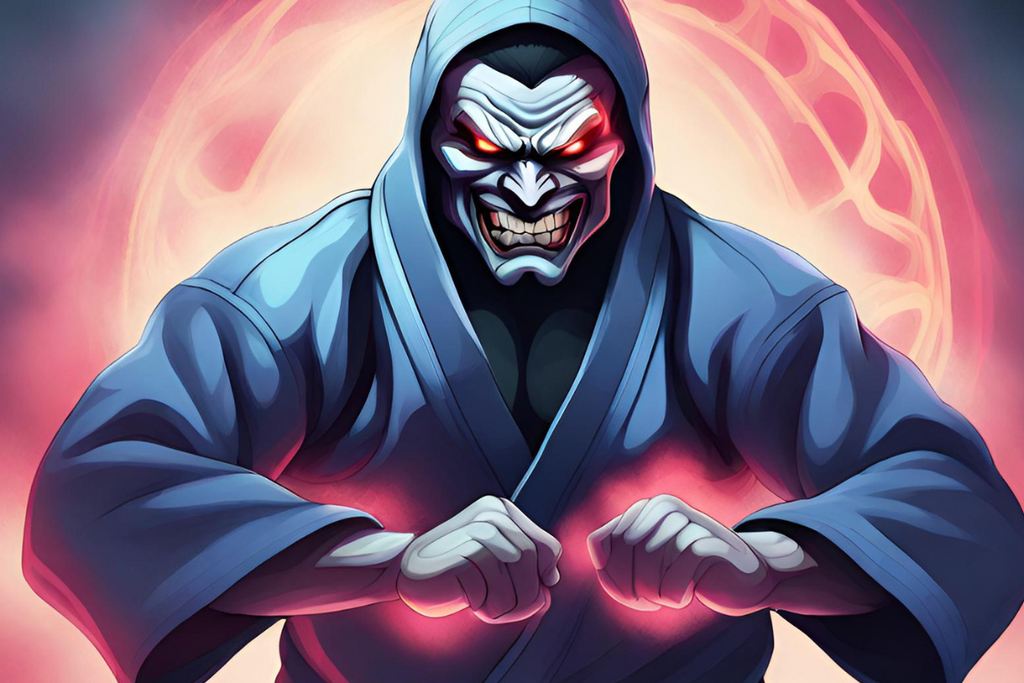
This is where a cult-like atmosphere is created, and students are constantly pressured to conform to strict rules that may not align with the true essence of BJJ, but rather to build a false sense of superiority.
In contrast, a healthy gym culture should promote inclusivity and support for all members, regardless of their rank. This means that higher-ranked individuals should not look down upon lower-ranked practitioners, but rather offer guidance and mentorship to help them improve.
Finding the balance between being a part of the team and still maintaining your ability to think for yourself is important. It's easy to get caught up in the status and titles, but at the end of the day, we are all just individuals trying to better ourselves through BJJ.

Ms. Wrislock's Story
When I first started BJJ, it was never to be a world champion but rather to empower myself and build self-defense skills. After being attacked on the street, I realized that my shyness and lack of confidence were holding me back from protecting myself and making me an easy target.
I was so timid with all the experienced and confident practitioners around me, feeling like I didn't belong. But there was something about the community and camaraderie on the mats that drew me in.
Maybe it was the first time submitting someone or even smaller wins like breaking a grip or passing a guard, but slowly I started gaining confidence in myself. And with that confidence came the willingness to speak up and share my thoughts and opinions in class.
I still remember the first time my training partner complimented me on my technique and asked for advice. It was a small moment, but it meant everything to me. I finally felt like I had something valuable to contribute and that my status as a practitioner didn't matter.
As I continued to train and challenge myself, I realized that BJJ was more than just a physical activity. It was a way for me to express myself, connect with others and build meaningful relationships.
And Submission Shark's apparel and gear have only enhanced this experience for me. They have so many cute and comfortable options for women, making it easier for me to feel confident and ready to roll on the mats. They have also given me and many others a platform to share my story and I'll be doing just that in more projects to come.
Expressing Your Individuality On The Mats
A few weeks after I started Brazilian jiu-jitsu, I created the Shark Frenzy BJJ Gi. As someone who has always been self-expressive, I wanted to bring my uniqueness onto the mats. However, in some gyms, wearing a non-traditional gi would be frowned upon and could potentially bring negative attention from higher-ranked individuals.
Thankfully, this was not the case at my gym. My instructors and training partners embraced my individuality and even showed interest in purchasing a Shark Frenzy gi for themselves. I remember being a shy white belt and being complimented on my gi and it was a huge confidence boost.
Whether you are the funny guy/gal or the serious competitor, it's important to feel comfortable expressing your personality on the mats without fear of judgment. This not only creates a more enjoyable training environment but also helps build strong bonds between teammates. Diversity is what makes our BJJ community so special, and we should celebrate and embrace it.
Just be respectful and cognizant of the gym culture when expressing your individuality. If you are unsure, it's always a good idea to ask for permission or speak to your instructor beforehand.
If you are looking to express yourself through your training gear, here are a few tips to keep in mind:
- Make sure the material and design of your gear are appropriate for BJJ training.
- Avoid anything that could potentially harm or injure your training partners.
- Respect any gym rules regarding uniforms and attire.
- Don't be afraid to be different and stand out, but always remain humble and respectful towards your training partners.
- Remember that it's not all about the gear, but rather the hard work and dedication you put in on the mats.
Final Thoughts
Not being a part of a community can be detrimental to our growth and development as individuals. Anxiety can stop us from receiving the benefits of being in a supportive group. It is important for us to feel accepted and valued within our BJJ community.
Bookmark this page so you can come back to it whenever you are feeling anxious or unsure about your place in the BJJ world.
Remember, we are all here to learn and grow together, regardless of our status or rank on the mats. And if you are looking for an 'Ice Breaker' to start a conversation with some of your training partners, shop Submission Shark's store. With a limited quantity for this BJJ gis, your uniqueness will truly stand out while your support of the brand helps you become a part of this community.

From athleisure to street wear apparel to no-gi training gear and even wall art, Submission Shark has everything you need to show your love for BJJ and connect with fellow practitioners while still staying true to yourself!


































Leave a comment